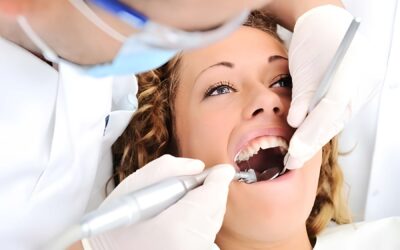Also known as early childhood or infant caries, baby bottle tooth decay occurs when a child’s teeth are continually subjected to the sugar contained in fruit juices, formula, milk, and other sweetened liquids and foods. Even diluted fruit juice can cause this condition.
In most cases, baby bottle tooth forms on the front teeth, appearing as dark brown spots. If you bottle feed your baby or suspect your child may already have baby tooth decay, here are some ways to prevent it and how it’s treated.
The Problem with Baby Bottle Tooth Decay
Baby caries (cavities) can be painful for babies and young children, besides make it hard for them to chew and eat. What’s more, your child’s baby teeth serve as “bookmarks,” as they reserve spaces for adult teeth. However, when baby teeth are injured or even destroyed, they fail to guide adult teeth to their proper locations.
This causes your child’s permanent teeth to become crowded or crooked. In the worse case scenarios, severely decayed baby teeth can result in abscessed teeth, which can cause infection to spread to other parts of the body.
Prevention Measures for Bottle Feeding Moms
Usually, the best way to treat babies caries is to prevent it from occurring in the first place. One of the main ways to prevent the problem is to never lay down your baby for napping or sleeping with a bottle as the sugar contained in the milk or juice stays on your child’s teeth for hours. On the other hand, babies who can sit up by themselves can probably have a bottle, provided they’re supervised and don’t fall asleep with the bottle in their mouth. Other preventative measures include:
- Don’t allow your toddler to walk around with a juice or milk-filled bottle.
- After feedings, use gauze or a damp cloth for wiping liquid from your baby’s teeth. This helps to remove sugar and bacteria-forming plaque on the gums and teeth.
- Have your children weaned from a bottle after the first birthday.
- Monitor your child’s cup sipping because continually sipping from a sippy cup can also cause tooth decay if sugar is included in a liquid.
- Don’t fill bottles with sugar water.
- Never sweeten baby food with sugar.
- Restrict how much juice you give your children and limit their sweets.
Treatments
Treating baby bottle tooth decay is not much different from what’s involved in correcting adult cavities. Stainless steel crowns are generally used. In addition to their durability, these crowns also not as prone to entail having follow-up treatments or needing to be replaced.
A children’s dentist in castle hill may recommend using sedation or a general anesthetic in cases of extensive restoration. Of course, this largely depends on the age of your child, as well as his or her level of maturity. Tooth extractions may bedone in more severe cases, or if the tooth is extensively decayed or is infected so that it can’t be restored.
Considerations and Warnings
- Even breastfed babies who fall asleep with unswallowed milk left in their mouths can also develop tooth decay because mouth bacteria feast on sugars that lead to tooth decay.
- It’s best not to give your baby a pacifier, but if you do, don’t dip it in honey or syrup. In fact, a child younger than a year old should never be given honey.
- Ask your Castle Hills children’s dentist about your baby’s fluoride needs. If you do not have fluoride in your drinking water, your dentist may recommend fluoride treatments or fluoride supplements. Only use low-fluoride toothpaste, the size of a small pea, for children 18 months to age 6. But after the sixth birthday, an Australian child can begin using standard fluoride toothpaste.
To make sure that your child has good oral health, set up an appointment with Hills Dental Care. Our highly competent dental team helps patients relax by practicing sedation dentistry and other methods to calm patients. Please contact us. As world-class dentists, we offer pain-free dentistry treatments for both adults and children.






